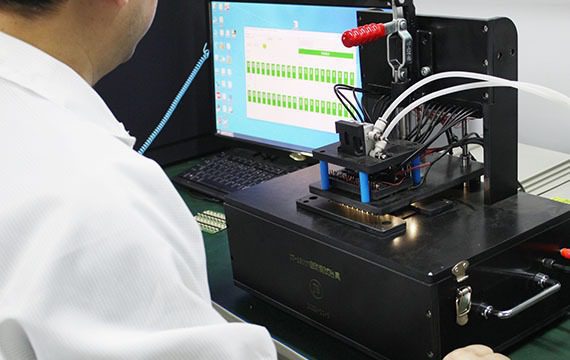The FPC flexible board requires a voltage resistance test to assess its current transmission capability and voltage withstand capacity. The use of high-current shrapnel micro pin modules as connection modules allows for current transmission and conduction within the range of 1-50A, providing overcurrent protection and a stable connection. The conductivity of the module is strong, and it demonstrates reliable performance even in small pitch applications, with the ability to adapt to pitch values between 0.15mm and 0.4mm. The module ensures stable contact without pin sticking, and offers an average service life of over 20 million times.
In addition, the thermal impedance of the FPC flexible board needs to be considered. The insulation resistance of double-layer FPC should be greater than or equal to 500M ohms. As for thermal insulation resistance, it should meet the following requirements: a) at room temperature: greater than or equal to 500M ohms; b) after wet heat treatment: greater than or equal to 100M ohms; c) after wet heat treatment: greater than or equal to 100M ohms; d) after wet heat treatment: greater than or equal to 100M ohms. Solderability is tested at 260±5℃, with a wetting time of 3~5 seconds, ensuring 100% wetting. The FPC flexible board should also pass the thermal shock test, with no delamination, bubbles, and oozing of Sn, when subjected to temperature shocks at 260±5℃ for 10 seconds, repeated three times.
The FPC flexible board finds extensive applications in smartphones, particularly in components such as batteries, screens, fingerprint modules, and cameras. The FPC must adhere to basic test standards, including: 1) evaluating the appearance of the substrate film surface and cover layer; 2) examining the deviation between the connection plate and the cover layer, checking for binder flow and conductor discoloration beneath the cover layer; 3) testing for temperature resistance, humidity resistance, voltage resistance, bending resistance, and soldering resistance in accordance with the specified requirements; 4) detecting poor plating bonding, coating layer leakage, and other defects.
This concludes the information regarding the thermal resistance requirement of the FPC flexible board. We hope this compilation has been helpful, and if you have any further questions, please feel free to contact our customer service assistant.

